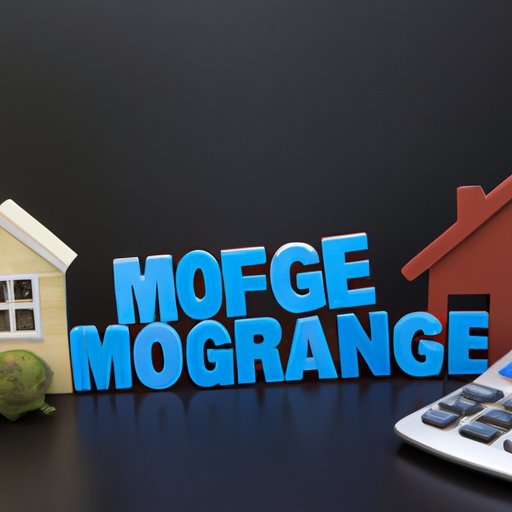Introduction
A mortgage is a loan taken out to purchase a home or other real estate. To qualify for a mortgage, you must show that you have the ability to repay it. When you’re thinking about taking out a mortgage, it’s important to understand how much you can afford and what factors will affect your budget.
In this article, we’ll explore the aspects of your financial life that will determine how much mortgage you can afford, including income, debt, credit history and more. We’ll also look at guidelines for calculating your maximum mortgage budget, managing your expectations, understanding the cost of homeownership, refinancing your mortgage and shopping around for the best rates and terms.

Calculating Your Maximum Mortgage Budget
When you’re calculating how much mortgage you can afford, there are several factors to consider. The most important factor is your income. Lenders will generally want to see that your total monthly housing costs (including principal, interest, taxes, insurance, and any other applicable fees) are no more than 28% of your gross income. Additionally, your total debt-to-income ratio should be no more than 36%.
Your credit history and credit score will also play a role in determining how much mortgage you can afford. Generally, lenders prefer a credit score of at least 620, but higher scores may be required depending on the type of loan and the lender. Additionally, lenders will look at your debt-to-credit ratio, which should be below 30%.
To get an idea of how much mortgage you can afford, use online calculators or speak with a lender. According to Bankrate, “An easy way to estimate your maximum mortgage payment is to take your gross annual income and divide it by 12 months and then divide it again by 4 (the four represents one-fourth of your gross monthly income). That number is the maximum mortgage payment you can afford.”1
Managing Your Mortgage Expectations
Once you’ve calculated your maximum mortgage budget, it’s important to set realistic expectations. You may find that you can’t afford as much as you thought you could, or that you don’t qualify for the loan amount you want. Before you start looking for a house, make sure you understand what you can realistically afford.
It’s also important to remember that your mortgage isn’t the only cost associated with buying a house. You’ll need to budget for closing costs, moving expenses, furniture, and other related costs. Setting achievable goals and making a plan can help you stay on track and avoid overspending.
Understanding the Cost of Home Ownership
When considering how much mortgage you can afford, it’s important to understand the true cost of homeownership. Most mortgages come with loan fees and closing costs, which can add up quickly. Make sure you understand what these costs are and factor them into your budget.
You’ll also need to consider your monthly payments, which will include principal, interest, taxes, insurance, and any other applicable fees. Again, your total monthly housing costs should not exceed 28% of your gross income. It’s important to factor in these costs when you’re deciding how much mortgage you can afford.
Refinancing Your Mortgage
If you find that you’re unable to afford the mortgage you originally took out, you may be able to refinance your loan to get better terms. Refinancing can lower your interest rate, reduce your monthly payments, and shorten your loan term. However, it’s important to understand that refinancing will come with its own set of costs, so you’ll need to factor those into your budget.
Refinancing may also be a good option if you want to take cash out of your home’s equity. This can be used for home improvements, to pay off debt, or for any other purpose. Just make sure you understand the risks and benefits before you decide to refinance.
Shopping for a Mortgage
Once you’ve determined how much mortgage you can afford, it’s time to start shopping for a loan. It’s important to compare different lenders and mortgages to find the best rate and terms for your budget. Some lenders may offer special programs or discounts, so make sure to ask about those as well.
It’s also important to read the fine print and understand all the details of the loan before you sign anything. If you don’t understand something, make sure to ask questions and get clarification. You don’t want to sign a loan agreement without being fully informed of the terms.
Conclusion
When it comes to determining how much mortgage you can afford, it’s important to consider all the factors. Income, debt, credit history, loan fees and closing costs, monthly payments, and other expenses all play a role in determining your maximum mortgage budget. It’s important to manage your expectations and shop around for the best terms and rates.
For more information, visit the Consumer Financial Protection Bureau website https://www.consumerfinance.gov/
(Note: Is this article not meeting your expectations? Do you have knowledge or insights to share? Unlock new opportunities and expand your reach by joining our authors team. Click Registration to join us and share your expertise with our readers.)
